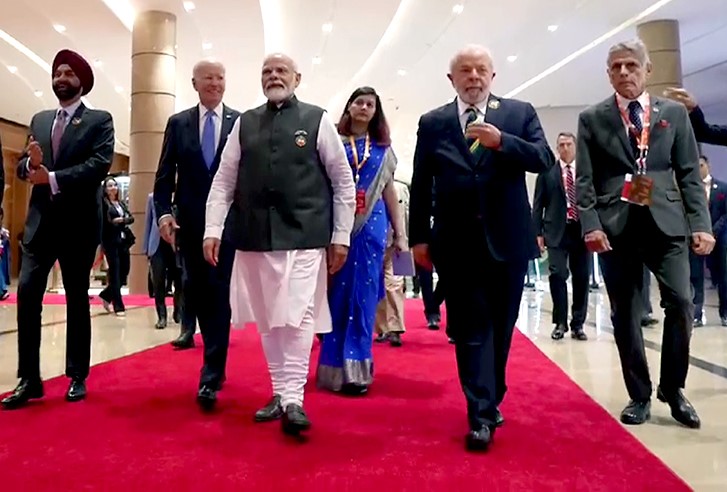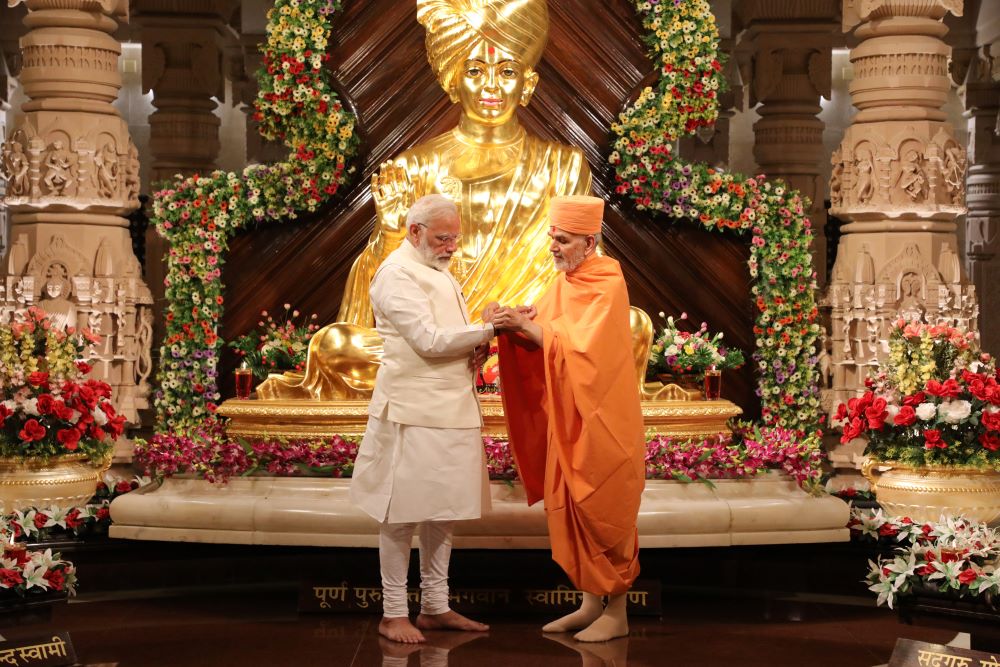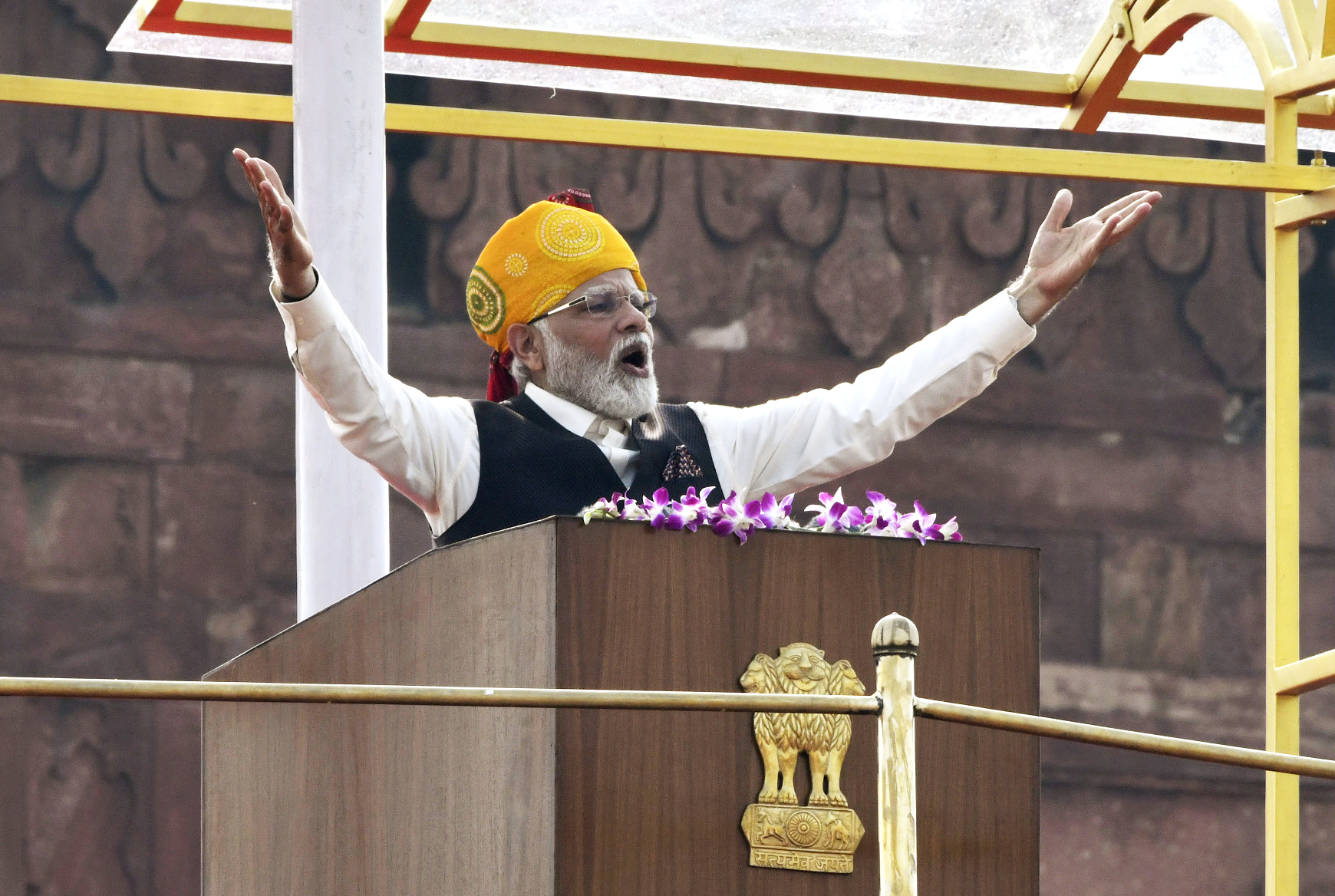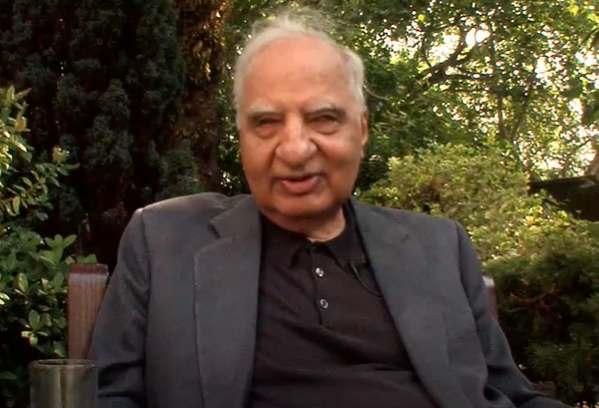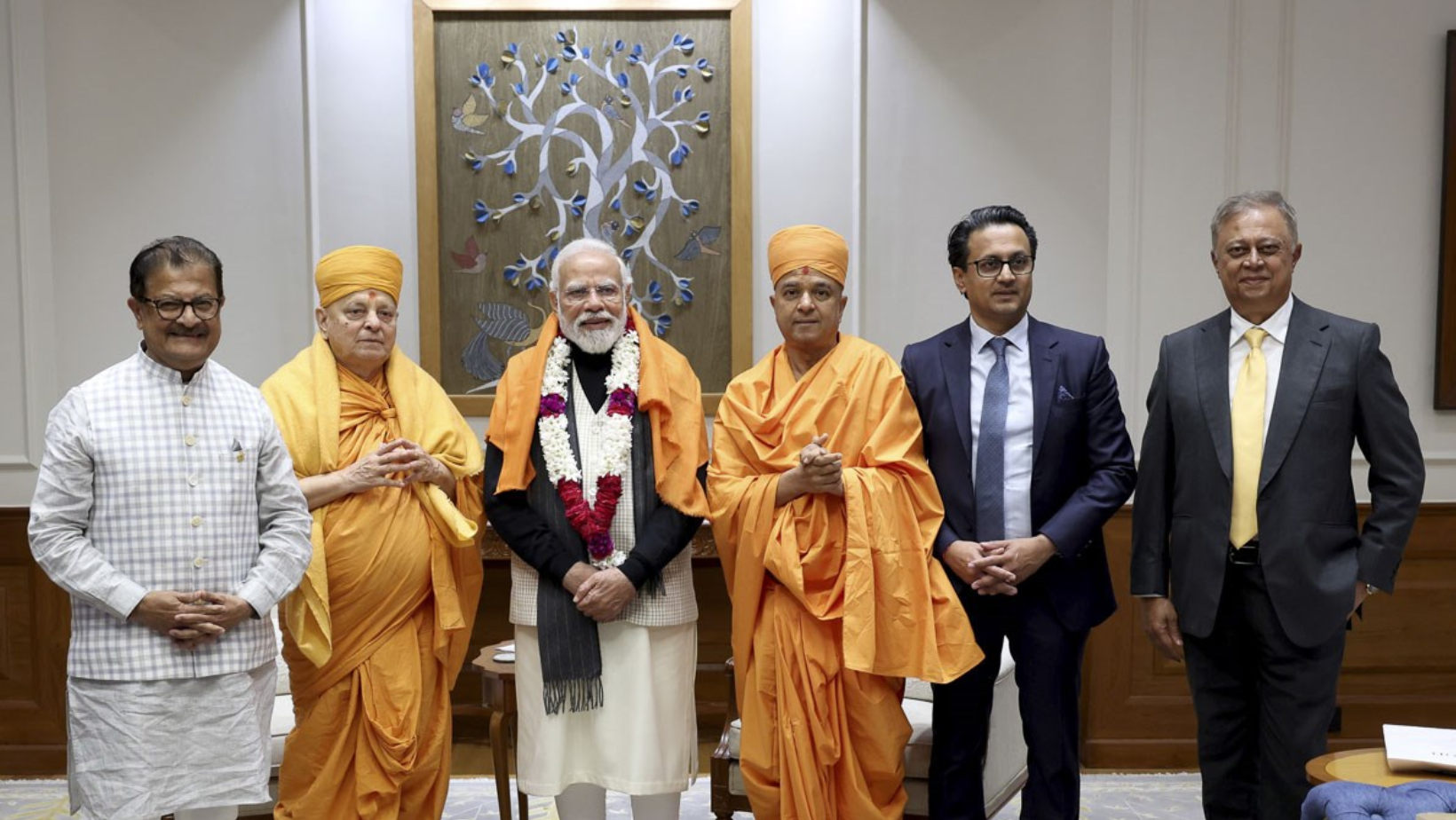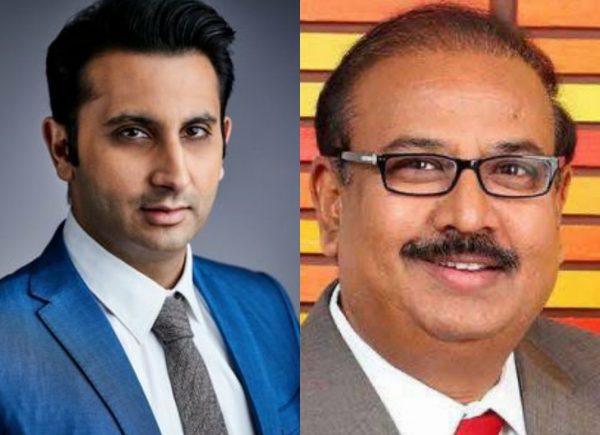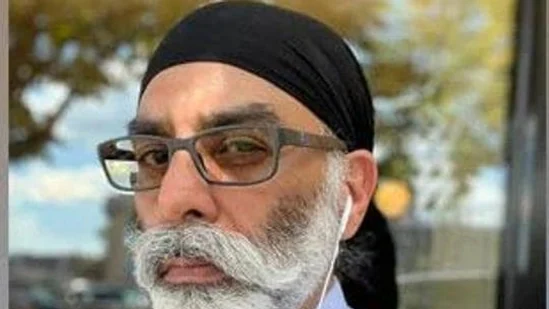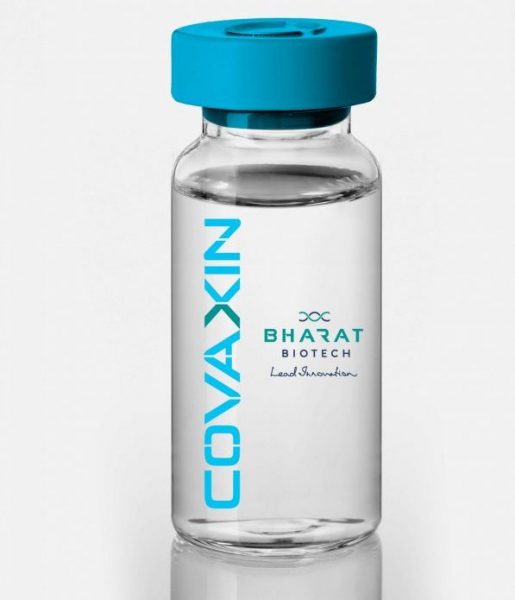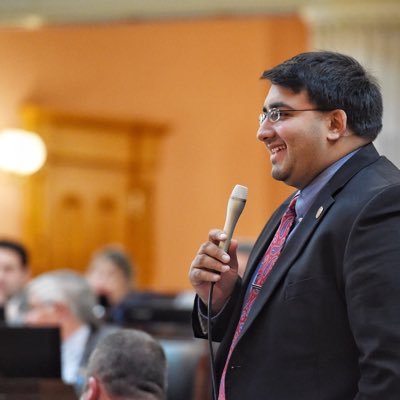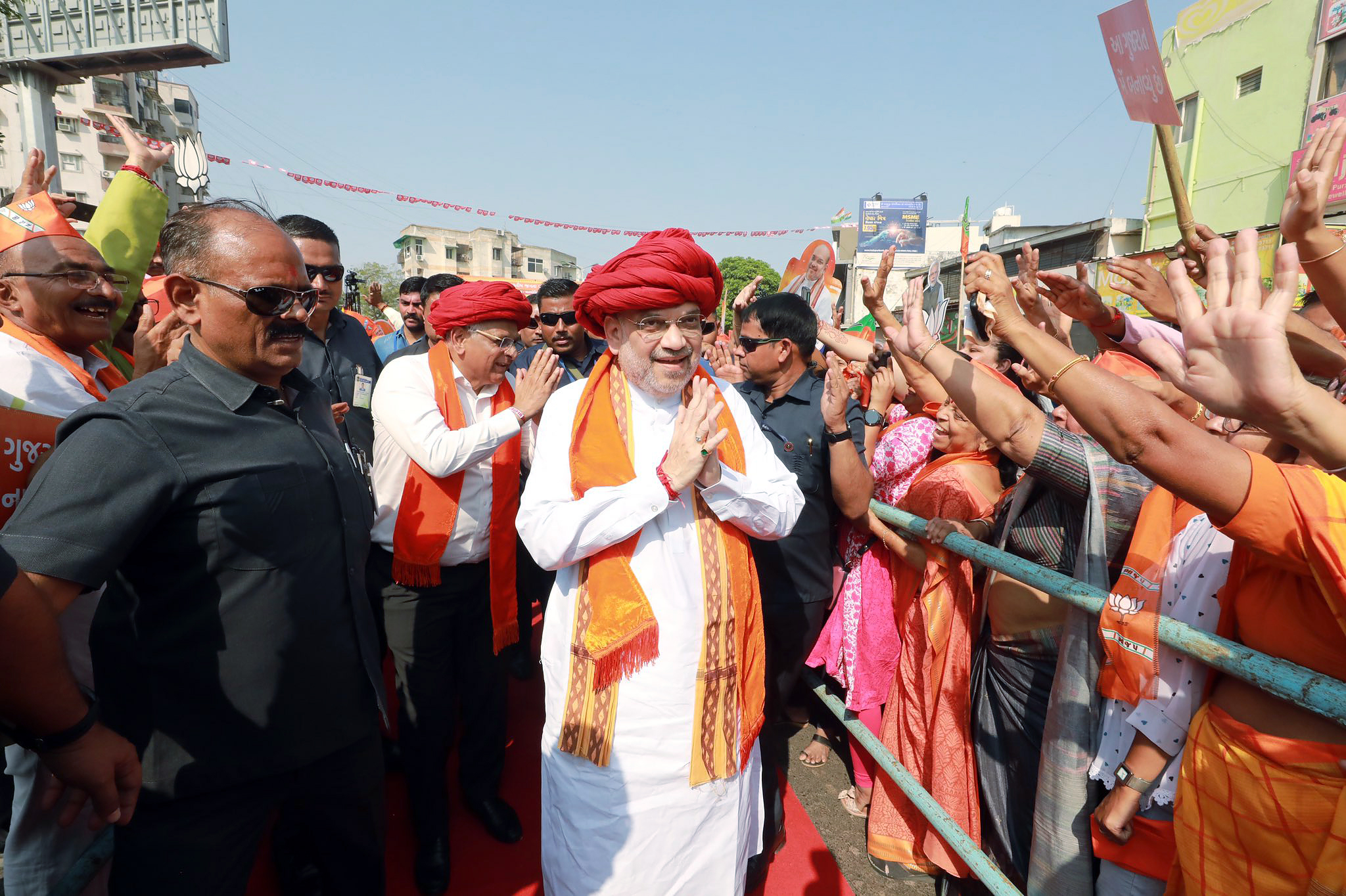From organizing a hugely successful G20 summit in New Delhi to engaging with key ally like the US and dealing with China, India had many diplomatic achievements this year, with PM Modi leading the efforts
Our Bureau
New Delhi/Washington, DC
As the year comes to an end and we look at it objectively, it can be said with no doubt that 2023 turned out to be a year of big achievements for Indian diplomacy with the G20 summit standing out as the country’s diplomatic triumph of the year. Through its G20 presidency, India was able to get the most influential, powerful, and consequential countries of the world to gather around the table and discuss, agree on some of the most pressing issues concerning the world today.
As External Affairs Minister (EAM) S Jaishankar said, the G20 is like the World Cup of diplomacy, where the biggest and strongest players come together. “When we took the presidency, people did not have many expectations out of it. Through our G20, we bridged all the divides, found a common ground for countries which were otherwise arguing among themselves, who found it very difficult to reconcile. But we were able to bridge it,” the EAM said in his address at the Rotary Institute 2023 event in Bengaluru on December 17.
India assumed the G20 Presidency on December 1, 2022.
The 18th G20 Leaders’ Summit was held in New Delhi on September 9 and 10. It saw the unanimous adoption of the G20 New Delhi Leaders’ Declaration, which demonstrated the commitment of the G20 leaders to address global challenges in an inclusive, decisive and action-oriented manner.
The biggest takeaway of the declaration was that all 83 paras of the declaration were passed unanimously with a 100 per cent consensus along with China and Russia in agreement. For the first time, the declaration contained no footnote or Chair’s Summary.
Also, the declaration being the most ambitious, contained 112 outcomes — both the outcomes and annexed documents — which is two-and-a-half- times more than any other.
Another big takeaway of the declaration was the launch of the Global Biofuels Alliance. Prime Minister Modi said that it marks a watershed moment in India’s quest towards sustainability and clean energy.
The Global Biofuel Alliance was one of the priorities under India’s G20 Presidency. Leading biofuel producers and consumers, Brazil, India, and the United States, are now working towards the development of a Global Biofuels Alliance along with other interested countries.

Another major takeaway was the launch of a mega India-Middle East-Europe shipping and railway connectivity corridor by India, the US, Saudi Arabia and the European Union. The India-Middle East-Europe Economic Corridor (IMEE EC) will encourage and provide impetus to economic development through enhanced connectivity and economic integration between Asia, West Asia/Middle East and Europe.
Modi, Biden bolster India-US relations
The personal camaraderie between Prime Minister Narendra Modi and US President Joe Biden has pushed the bond between the two world’s largest democracies to greater heights. President Joe Biden has said the friendship between the US and India was among the most consequential in the world as the two countries signed several major deals to further elevate their strategic technology partnership.
During PM Modi’s visit to the US in June, US President Joe Biden and First Lady Jill Biden welcomed him at the White House for the state dinner. PM Modi also addressed a joint session of the US congress (a rare honour for a visiting leader from overseas) is evident of the fact that India-US relations are deepening and widening.
PM Modi stressed that the state dinner evening has become quite special because of the presence of the people of the two countries, as he called them “most precious assets.”
During his speech at the State Dinner held at the White House, PM Modi said, “Indian Americans have come a long way in the US and have always found a respectful place in America’s melting pot. Indian Americans have played a significant role in further strengthening the inclusive society and economy of the US.”
Showing the strong bond between PM Modi and US President Biden, the two leaders were seen sharing a hug at the White House.
A ‘state visit’ holds a special significance as compared to other foreign visits, as this is a formal visit by the head of state to a foreign country at the invitation of the head of state hosting him. Moreover, the visit signifies the highest expression of friendly bilateral ties between two sovereign nations.
In one of Biden’s addresses, he stressed that the relationship between India and the United States is “one of the most defining relationships” in the 21st century.
Moreover, emphasising the strong boost in the strategic sectors between the two countries, multiple deals and Memorandum of Understandings (MoUs) were signed between India and US, including the semiconductor deal, artificial intelligence (AI), space-related deals and much more.
During the state visit, PM Modi and President Biden hailed the signing of an MoU on the Semiconductor Supply Chain and Innovation Partnership as a significant step in the coordination of the two countries’ semiconductor incentive programmes, which will further promote commercial opportunities, research, talent, and skill development, according to a statement.
The leaders welcomed an announcement by Micron Technology to invest up to USD 825 million to build a new semiconductor assembly and test facility in India with support from the Indian government.
Following the state visit, in July, President and CEO of semiconductor player Micron Technology Sanjay Mehrotra met PM Modi in Gujarat’s Gandhinagar and they discussed the US-based company’s plans to bolster the semiconductor manufacturing ecosystem within India. Micron announced plans to build a new assembly and test facility in Gujarat with the facility expected to meet demand from both domestic and international markets.
Besides the semiconductor deal, PM Modi and Biden further highlighted working on other sectors as well, including the co-production of jet engines for the Indian Air Force, defence industrial collaboration, space sector cooperation, innovation partnership and collaboration in emerging artificial intelligence technology.
Modi’s leadership in 2023
Diplomacy is all about communication. Nimbleness and swift actions are integral to it and Prime Minister Narendra Modi has been a master at foreign policy since his first term. He relished global engagements.
From managing India’s periphery to engaging major global powers, the diplomatic and leadership skills PM Modi has shown India’s confident revival, outlined by India’s achievements in 2023, including its successful G20 presidency and lunar mission, a post-COVID-19 recovery and robust growth.
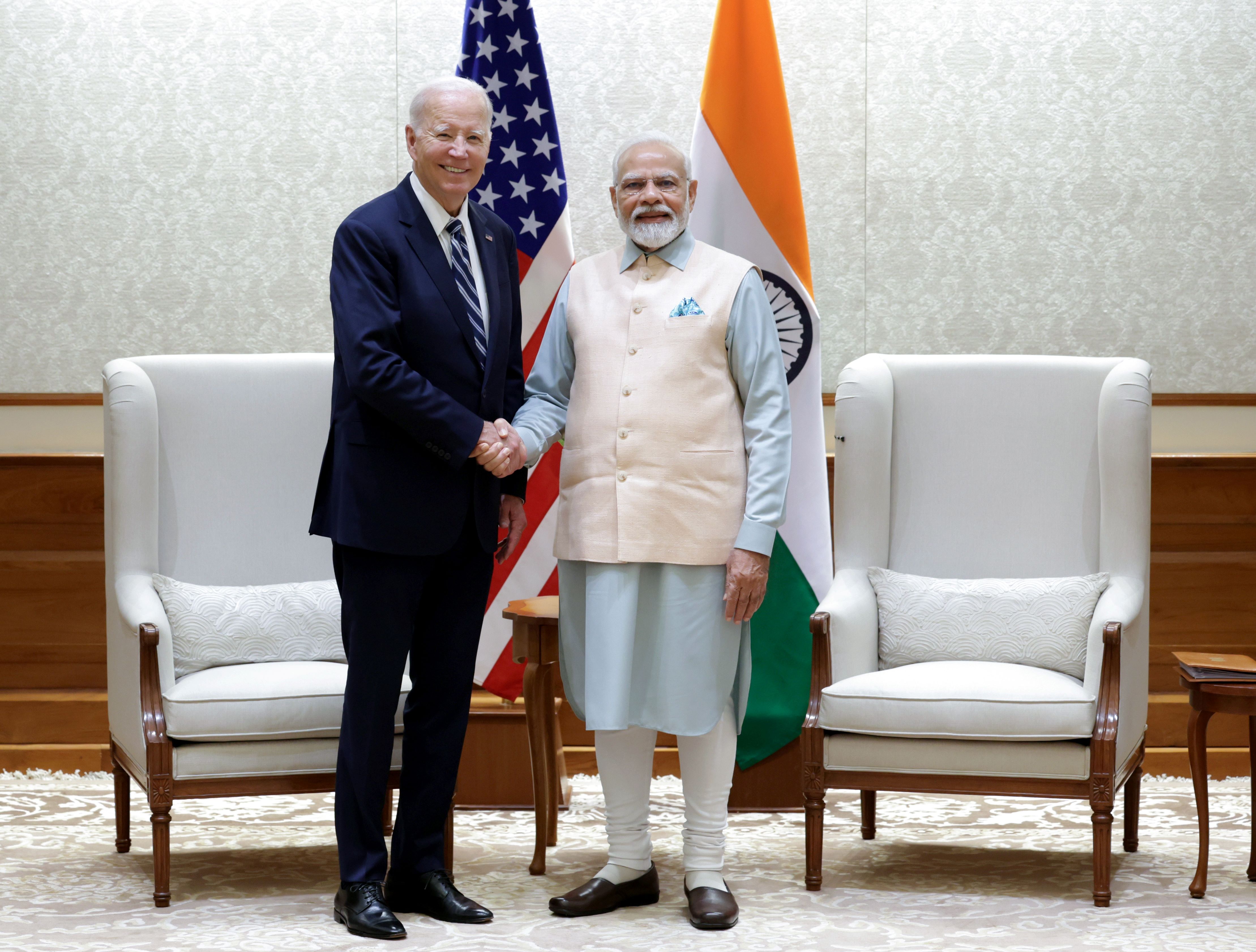
Foreign policy during the first term of the Modi government did extremely well. There were hardly, if any, missteps. Across the board, starting with the idea of the ‘Neighbourhood First’ policy and the idea of building strategic partners, Prime Minister Modi, and his approach towards reaching out to different stakeholders, yielded huge dividends.
Throughout the year, PM Modi embarked on a series of diplomatic missions, fostering international collaborations, strengthening ties, and showcasing India’s commitment to global peace and development.
This year was also challenging as India’s strongest ally Russia faced criticism for invading its neighboring Ukraine. India managed to maintain its relations with Russia while navigating through these challenging geopolitical dynamics.
Securing an agreement on almost a hundred issues on the agenda, apart from that on the Russia-Ukraine war, was no mean achievement.
The first challenge for PM Modi was during the G7 summit held in Japan in May, where leaders of G7 countries–Canada, France, Germany, Italy, Japan, the United Kingdom, and the United States–were present. Prime Minister Modi attended the G7 Summit under the Japanese Presidency and emphasized the need for collaboration with Japan and like-minded countries to address global challenges such as climate change, supply chain disruptions, economic recovery, energy instability, healthcare, food security, and peace and security.
Additionally, while addressing the challenges and tensions with China, PM Modi stated, “India is committed to protecting its sovereignty and integrity while promoting the peaceful resolution of maritime disputes based on international law.”
After concluding his visit to the USA, the PM visited Egypt from June 24-25, where Egyptian President Abdel Fattah El-Sisi conferred PM Modi with the ‘Order of the Nile.’ It was the 13th state honour of its kind conferred on him. PM Modi held a meeting with Egyptian President Sisi during which they signed an agreement to elevate the bilateral relationship to a “Strategic Partnership.”
PM Modi’s visit to South Africa for the 15th BRICS summit held in Johannesburg marked a major development with the group deciding to include six new members: Argentina, Ethiopia, Egypt, Iran, Saudi Arabia, and the UAE. India actively participated in BRICS outreach activities, engaging with other countries and regional organizations to promote dialogue and collaboration. This engagement helped broaden the scope and impact of BRICS initiatives.
In his last leg of foreign visits in 2023, PM Modi arrived in Indonesia to attend the ASEAN-India Summit. ASEAN is considered one of the most influential groupings in the region, with India and several other countries, including the US, China, Japan, and Australia, as its dialogue partners.
PM Modi made his last landmark visit of the year to the UAE to attend the Conference of Parties-28 (COP28) in Dubai, the high-level segment of the 28th Conference of Parties (COP-28) to the United Nations Framework Convention on Climate Change (UNFCCC).
PM Modi’s foreign visits have further solidified India’s diplomatic and economic ties with these crucial partners. Under PM Modi’s leadership India’s diplomatic efforts, regional engagement, portraying a confident and capable nation on the global stage, he managed to carve out personal equations with world leaders which has paid dividends.
















